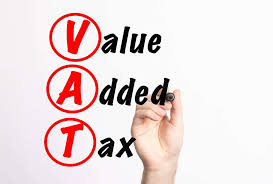The time value of money is a cornerstone of financial analysis. The time value of money is a financial concept that says money is worth more today than it will be in the future due to inflation. It is used by finance professionals to determine the value of cash flows in one period compared to another. The time value of money is the principle that money available now is worth more than an identical amount of money in the future.
Why should you care about your money having a time value? understanding how interest rates affect your wealth can save you or your business a fortune. This concept can help investors make informed decisions about their portfolios and investments.
Examples of Time Value of Money
The time value of money is a concept used in financial economics to determine the present value of future cash flows, taking into account how much a dollar would be worth at different points in time. This can be shown by discounting the future cash flow to its present value. For example, if you put $1,000 in a savings account with a 5% interest rate, after one year, you will have $1,050. Inflation might increase the cost of goods and services so that they are no longer worth $1 but rather $1.05. If this happens, you will have to spend more than $1.05 to buy those goods and services, which makes your investment worth less than originally made.
To illustrate, imagine that you have $1 million and are considering investing it for five years at 6 percent annual interest. You could take $600,000 today as an investment or wait until after five years to receive the full $1 million from your investment. If you waited, however, inflation would have eaten away at your purchasing power; if inflation is 2 percent per year, then after five years $1 million will only be worth around $545,000. In other words, depending on how long you hold onto your investments and how quickly they grow compared with inflation rates in the economy, you could come out ahead by immediately taking your money rather than waiting several years before collecting all of it.
Calculating the Time Value of Money
We have already seen how the time value of money is used to determine the present value of a future cash flow. We can also use it to determine how much interest must be paid on loan to compensate for the fact that money today is more valuable than it will be in the future.
The simplest form of calculating interest is simple interest, which represents how much an investment has earned or lost over time. It does not consider any initial amount invested or compound interest on the initial amount invested.
The PV (present value) or FV (future value) formula calculates today’s dollar amount needed to accumulate a given sum in the future. The PMT (payment) formula calculates how much will be paid each period if an investment grows at a certain rate.
To calculate the present value of any future sum, use this equation:
PV = FV/(1+r)^n, where:
FV is the future value you would like to achieve. n is the number of periods over which your investment will grow; r is the annual interest rate, and PV is your present value.
How Does the Time Value of Money Relate to Opportunity Cost?
Opportunity cost refers to the value of any alternative use of funds, assets, or time, including what you could have done with them instead. For example, if you spend $100 on a new pair of shoes and then find out that you could have bought a car instead for $500, your opportunity cost would be $400, the difference between what you paid for the shoes and what you could have used that money for.
When applied to time, opportunity cost is simply about looking at what else could have been done with your time instead of working on something or attending an event. For example, if you spent three hours at work when you could have been relaxing at home with family, your opportunity cost would be whatever else those three hours might have been spent doing had they not been spent at work.
The Difference Between Present Value and Future Value
The difference between present value and future value is that present value refers to the amount of money an investment currently has. In contrast, future value refers to the amount of money that an investment will have in the future. For example, if you have $100 today and invest it at 10% interest for one year, then at the end of that year, you will have $110. This is your current value or present value.
If you hold onto this money until next year, when it will be worth $111, then your future value is $111. Thus, both present value and future are equal to each other but not equal to the original amount invested.
The difference between present value and future value is important because it allows us to determine whether or not an investment will be profitable over time. If we know what our investments will be worth in the future and how long they’ll take to get there, then we can figure out whether or not it’s worth making those investments now or later on.
Why Is the Time Value of Money Important?
The time value of money is important for several reasons:
Business valuations
Auditors rely on cashflow valuations to assess the necessity to impair or adjust investments. It empowers them to provide guidance on critical business matters such as financial strategy and tax planning, as well as buy-and-sell options. To place a value to a business, accountants look at potential cash flows from the operations and find what they are worth based on their present value. In order to determine the value of a firm, an investor must determine the present value of operating free cash flows.
Risk management
It’s easier to calculate how much something will cost or how much you’ll save if you know its present value or future value. If you want to know how long it will take to save up a certain amount of money, present value calculators can help. Using these calculations, you can find out how much you need to set aside monthly to reach your goal and the inherent risk involved.
Investment decisions
You can determine when it makes sense to invest now rather than later by comparing the expected growth rate of your investment with the interest rate on your savings account or certificate of deposit. With this information, you’ll know whether it pays off to invest now or wait until next year when rates might be higher. It is important because it affects every financial decision that you make. If you want to buy a house, for example, and you have enough savings to make a 20% down payment, you need to consider how long it will take for your mortgage balance to be paid off based on your monthly payments and interest rate.
How Is the Time Value of Money Used in Finance?
A basic concept in finance is the time value of money. When you borrow or invest your savings, you have to consider how much interest you’ll pay on the principal amount you borrow. The amount of interest depends on how long it takes to pay off the debt or for your investment to mature.
The time value of money can be used to figure out how much interest you’ll pay on borrowed money and how much you’ll earn from investing your savings over time.
The Future Value Formula
The future value formula is used to calculate how much money will be in an investment account at a specified date in the future. In this case, we use ‘P’ as our variable representing the principal amount we’re using to calculate the future value. In other words, P represents our initial investment. We also use ‘i’ as our variable representing an interest rate per period. If we want to know what our account balance will be one year from now, we will use ‘n’ as our variable representing years into the future.
Conclusion
The time value of money tells us that money now is worth more than the same amount of money in the future. It’s a simple concept with some surprisingly powerful implications. Whether we’re considering a business loan, retirement plans, or our finances, it’s critical to recognize the importance of this principle. Do you need help with valuing your business worth? We are your professional partner of choice, you can trust us to guide you through the most difficult financial decisions. We are here to help you, reach out to the specialists at FHC today.














